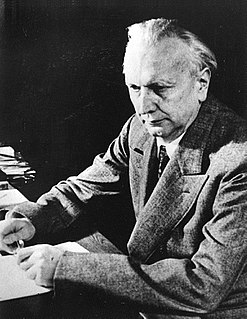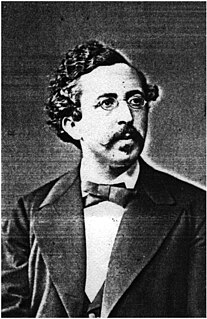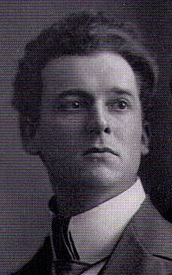This article needs additional citations for verification .(April 2010) |
Michael Landmann (16 December 1913 in Basel – 25 January 1984 in Haifa) was a Swiss-Jewish philosopher.
This article needs additional citations for verification .(April 2010) |
Michael Landmann (16 December 1913 in Basel – 25 January 1984 in Haifa) was a Swiss-Jewish philosopher.
Landmann was the son of economist Julius Landmann and philosopher Edith Landmann. Philologist Georg Peter Landmann is his brother. His parents were friends of Stefan George and were connected to the Georgekreis, a circle of writers inspired by George.
Since his father had worked in Kiel, Landmann attended a gymnasium there from 1927 to 1933. Having returned to Switzerland, he studied philosophy, psychology and German studies at the University of Basel. Herman Schmalenbach, Paul Häberlin und Walter Muschg were among his teachers. 1939 he received his doctorate with a thesis on Socratic philosophy as an ethic of values (Der Sokratismus als Wertethik). After assisting Schmalenbach and Karl Jaspers, Landmann earned his habilitation under the mentorship of Otto Friedrich Bollnow at the University of Mainz. From 1951 till 1978 Michael Landmann was Professor of philosophy at the Free University of Berlin. His main field of study was philosophical anthropology
Since 1939, Michael Landmann was married to the Jewish writer Salcia Landmann, born Passweg.

Martin Heidegger was a key German philosopher of the 20th Century. He is best known for contributions to phenomenology, hermeneutics, and existentialism.

Edith Stein was a German Jewish philosopher who converted to Catholicism and became a Discalced Carmelite nun. She is canonized as a martyr and saint of the Catholic Church, and she is one of six co-patron saints of Europe.

Friedrich Wilhelm Joseph Schelling, later von Schelling, was a German philosopher. Standard histories of philosophy make him the midpoint in the development of German idealism, situating him between Johann Gottlieb Fichte, his mentor in his early years, and Georg Wilhelm Friedrich Hegel, his one-time university roommate, early friend, and later rival. Interpreting Schelling's philosophy is regarded as difficult because of its evolving nature.

Leo Strauss was a German-American political philosopher and classicist who specialized in classical political philosophy. Born in Germany to Jewish parents, Strauss later emigrated from Germany to the United States. He spent much of his career as a professor of political science at the University of Chicago, where he taught several generations of students and published fifteen books.

Martin Buber was an Austrian Jewish and Israeli philosopher best known for his philosophy of dialogue, a form of existentialism centered on the distinction between the I–Thou relationship and the I–It relationship. Born in Vienna, Buber came from a family of observant Jews, but broke with Jewish custom to pursue secular studies in philosophy. In 1902, he became the editor of the weekly Die Welt, the central organ of the Zionist movement, although he later withdrew from organizational work in Zionism. In 1923, Buber wrote his famous essay on existence, Ich und Du, and in 1925, he began translating the Hebrew Bible into the German language.

Karl Theodor Jaspers was a German-Swiss psychiatrist and philosopher who had a strong influence on modern theology, psychiatry, and philosophy. After being trained in and practicing psychiatry, Jaspers turned to philosophical inquiry and attempted to discover an innovative philosophical system. He was often viewed as a major exponent of existentialism in Germany, though he did not accept the label.
Hans Jonas was a German-born American Jewish philosopher, from 1955 to 1976 the Alvin Johnson Professor of Philosophy at the New School for Social Research in New York City.

Hermann Cohen was a German Jewish philosopher, one of the founders of the Marburg school of neo-Kantianism, and he is often held to be "probably the most important Jewish philosopher of the nineteenth century".

Max Ferdinand Scheler was a German philosopher known for his work in phenomenology, ethics, and philosophical anthropology. Considered in his lifetime one of the most prominent German philosophers, Scheler developed the philosophical method of Edmund Husserl, the founder of phenomenology. Given that school's utopian ambitions of re-founding all of human knowledge, Scheler was nicknamed the "Adam of the philosophical paradise" by José Ortega y Gasset. After Scheler's death in 1928, Martin Heidegger affirmed, with Ortega y Gasset, that all philosophers of the century were indebted to Scheler and praised him as "the strongest philosophical force in modern Germany, nay, in contemporary Europe and in contemporary philosophy as such." Scheler was an important influence on the theology of Pope John Paul II, who wrote his 1954 doctoral thesis on "An Evaluation of the Possibility of Constructing a Christian Ethics on the Basis of the System of Max Scheler", and later wrote many articles on Scheler's philosophy. Thanks to John Paul II as well as to Scheler's influence on his student Edith Stein, Scheler has exercised a notable influence on Catholic thought to this day.
Hans Blumenberg was a German philosopher and intellectual historian.

Philosophical anthropology, sometimes called anthropological philosophy, is a discipline dealing with questions of metaphysics and phenomenology of the human person.

Jakob Klatzkin, Yakov/Jakub Klaczkin was a Jewish philosopher, publicist, author, and publisher.

Günther Anders was a German philosopher, journalist, essayist and poet.
Michael Hagemeister is a German historian and Slavist, an authority on The Protocols of the Elders of Zion and on Sergei Nilus.
Hans Lenk is a German rower who competed for the United Team of Germany in the 1960 Summer Olympics, and an Emeritus Professor of Philosophy. He was born in Berlin.

Isaak Iselin was a Swiss philosopher of history and politics.

Friedrich Wilhelm Wolters was a German historian, poet and translator; one of the central figures in the George-Kreis.

Andreas Urs Sommer is a German philosopher of Swiss origin. He specializes in the history of philosophy and its theory, ethics, philosophy of religion, and Skepticism. His historical studies center on the philosophy of Enlightenment and Nietzsche, but they also deal with Kant, Max Weber, Pierre Bayle, Jonathan Edwards, and others.
Heinrich Popitz was a German sociologist who worked towards a general sociological theory. Alongside thinkers like Helmut Schelsky, Hans Paul Bahrdt, Dieter Claessens, and others he was one of those sociologists in post-war Germany who founded their sociological reflections on insights from Philosophical Anthropology, thus creating an alternative to the then dominant paradigms of the Frankfurt School and Cologne School. His work revolves around the four central concepts power, norms, technology, and creativity.
Renata Johanna von Scheliha was a German classical philologist. She authored a number of books, treatises and monographs and carried out several translations.